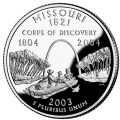For our 2024 rankings of prelicensure BSN programs, the research team at Nursing Schools Almanac compiled an extensive database of student performance on the National Council Licensure Examination for Registered Nurses (NCLEX-RN). Aspiring registered nurses in the United States must pass this examination before they may commence practice. Thus, student performance on the NCLEX-RN exam provides an excellent benchmark for comparing the relative quality of bachelor’s degree programs.
For our 2024 rankings of ADN programs, the research team at Nursing Schools Almanac compiled an extensive database of student performance on the National Council Licensure Examination for Registered Nurses (NCLEX-RN). Aspiring registered nurses in the United States must pass this examination before they may commence practice. Thus, student performance on the NCLEX-RN exam provides an excellent benchmark for comparing the relative quality of associate’s degree programs.
For our 2024 rankings of LPN programs, the research team at Nursing Schools Almanac compiled an extensive database of student performance on the National Council Licensure Examination for Practical Nurses (NCLEX-PN). Aspiring practical nurses in the United States must pass this examination before they may commence practice. Thus, student performance on the NCLEX-PN exam provides an excellent benchmark for comparing the relative quality of practical nursing programs.
Before selecting a nursing school and program, students must carefully evaluate the cost of attendance. Nursing education entails a number of significant expenses, including enrollment and tuition fees, textbooks and equipment, room and board, and other living expenses. A clear budget for these costs is critical, particularly since they can vary dramatically by institution and by specific training program.
Private colleges and universities do not receive direct financial support from the local state government, unlike their public counterparts. As a result, private schools generally charge higher tuition fees. However, these schools are an excellent option for individuals who value their enhanced prestige, individualized instruction, and highly engaged alumni base. Collectively, Missouri’s thirty private nursing schools offer licensure for all critical nursing roles, including certified nursing assistant (CNA), licensed practical nurse (LPN), and registered nurse (RN).
Public colleges and universities are administered and significantly funded by the local state government. They have significantly lower tuition than many private institutions, yet they still offer state-approved curriculum and instruction methods. Public schools are an excellent fit for candidates who want to join the nursing vocation on a strict budget. Thankfully, Missouri’s nursing students can choose from 65 public school campuses that offer nursing education.
Licensed practical nurses (LPNs) perform a number of important tasks in Nebraska’s medical community. Under the supervision of registered nurses (RNs) and physicians, they provide essential patient care like taking vital signs, changing bandages, updating patient health records, and helping patients to bathe and dress. LPNs are employed in a variety of settings including hospitals, private homes, doctors’ offices, and extended care facilities. Practical nursing offers a promising and rewarding career, with the opportunity to pursue RN licensure at a later date.
Many nursing students must weigh costs heavily when choosing their school. The all-in cost of nursing education extends well beyond tuition. It also includes registration fees, books, supplies, housing, meals, transportation, and other living expenses. These costs can vary dramatically by both school type and program length. In general, public universities and community colleges cost significantly less than their private counterparts, and two-year (or shorter) programs cost less than a four-year bachelor’s degree.
Nursing programs of two years or less
Unlike their public counterparts, private colleges and universities are not subsidized by the local state government. As a result, private nursing schools tend to carry a higher price tag than public nursing schools. These private institutions carry several important advantages, however.
Nebraska’s public colleges and universities are a popular option for aspiring nurses. These institutions offer several distinct benefits. The first is cost. Public schools are much less expensive than private schools, since they receive significant funding from the state government. Another benefit is convenience. Since public schools often have a number of local campuses, nursing students enjoy a shorter commute.
Overview of Nebraska’s public nursing programs










